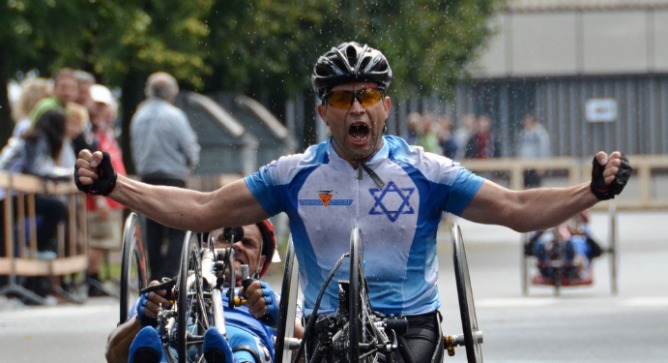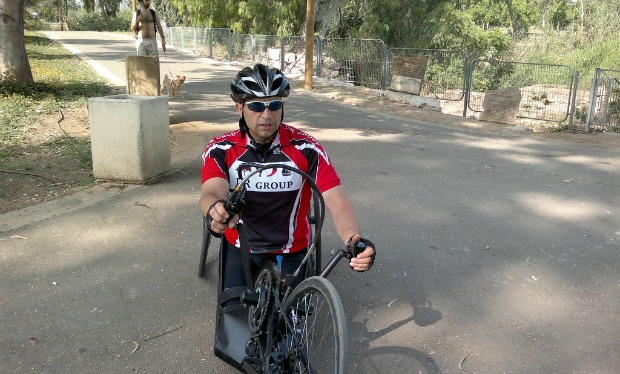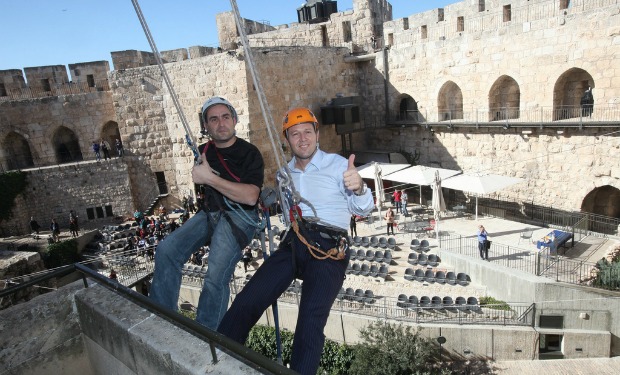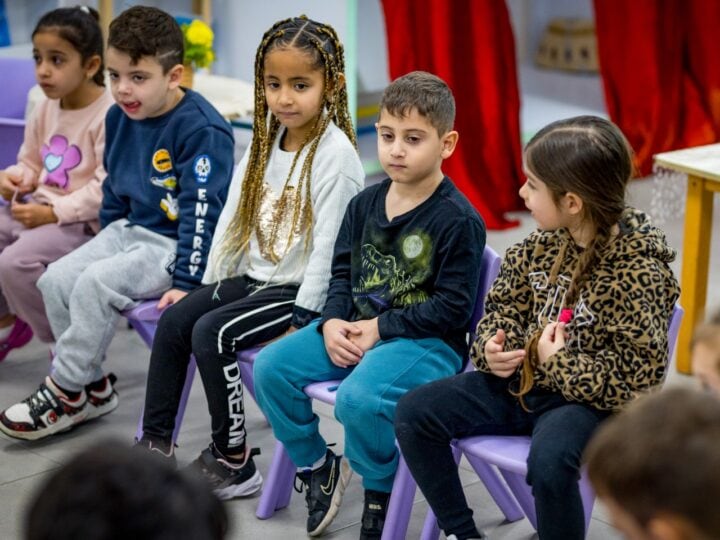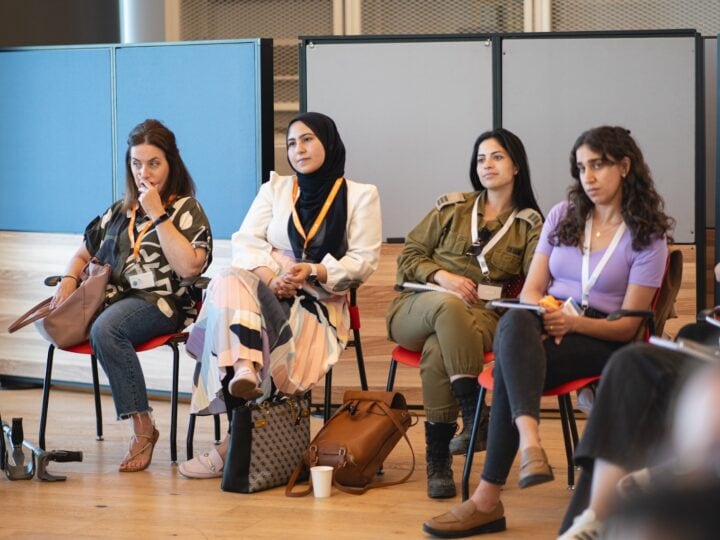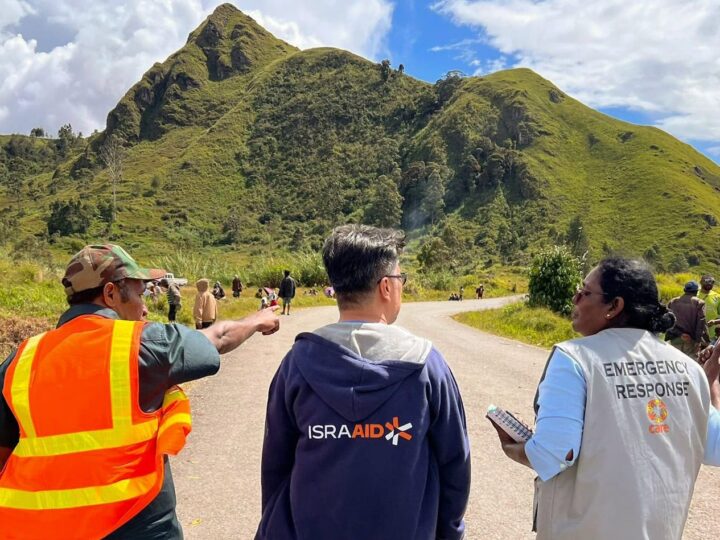Until a crippling motorcycle accident in 1999, Israeli high-tech exec Nati Gruberg was a paunchy couch potato. In August, he’ll be one of three Israeli handcyclists among 4,200 athletes from 160 nations heading to the London Paralympic Games.
It’s easy to pick out Gruberg from other cyclists rounding the trail at Tel Aviv’s Ganei Yehoshua Park. His muscular arms power a custom-fitted German handcycle as his barefoot legs stay tucked beneath him.
Spread the Word
• Email this article to friends or colleagues
• Share this article on Facebook or Twitter
• Write about and link to this article on your blog
• Local relevancy? Send this article to your local press
Speaking to ISRAEL21c at the Israeli Olympic Committee headquarters following his morning training, Gruberg jokes that before his accident he barely lifted a finger. “The main thing was moving from the couch to the kitchen to make coffee,” he says while sipping a Coca-Cola Zero, his crutches resting nearby.
He was puzzled when a representative from Etgarim (Challenges) — a non-profit formed in 1995 by disabled Israel Defense Force veterans and rehabilitation experts – visited him in the rehab hospital and broached the idea of cycling. Gruberg’s legs were so badly injured that he underwent 13 surgeries over two-and-a-half years.
“I thought there was something wrong with him,” Gruberg recalls. But as soon as he understood the volunteer was talking about a handbike, he was intrigued. He soon ordered his own cycle and set his sights on the New York Marathon – “not to win, but to finish and see how it goes.”
He hired a coach, Eran Caspi, who advised him to get “a serious bike” and then start training – partly for rehab and partly to get his weight down from about 200 pounds.
“After three months, I became second in Israel and my coach told me that before the marathon I should go look at other races in the world.”
He went to a European Handcycling Federation time trial race in Czechoslovakia and finished sixth. Caspi informed Gruberg that he wasn’t going to the marathon after all, because he was going to Beijing — the only Israeli handcyclist to receive an invitation to the 2008 Paralympic Games.
Picking himself up again
It would be nice to report that Gruberg did well in Beijing, but a day before the race, he landed in the hospital with a broken shoulder and ribs after being struck by a police car.
“The only thing on my mind was not even the pain, but what I was doing to my family again,” he recalls. He and his wife, Yaffit, have three children – Paz, now 15; Ofri, 11; and Ido, 9.
“I saw my wife sitting near my bed in Beijing and all I could think was, ‘She doesn’t deserve this.’ But after two weeks we came back to Israel, and two days later she came to me with a present. When I opened it, I was choking on my tears — she bought me a [bike] helmet because the one I was wearing in Beijing got broken.
“I said, ‘What the hell are you doing?’ She said to me, ‘You don’t have to compete, but you have to go back on the bike again.’ In the same second I reassembled my bike and went out for 20 minutes with her. I came back with a smile like a little kid. Of course I reopened a few of my broken bones, but I didn’t care about that.”
With strong family support, in 2009 Gruberg hesitantly started competing in Israel again. “The Paralymic Committee asked me to finish [at least] eighth in the championships so I could stay on the team, and I did it,” he reports proudly.
Feeling the need for a greater push, he argued his way onto the first and only Tour de Israel bike race in 2010, covering 760 kilometers (472 miles) from Metulla to Eilat in four days. “I didn’t even finish last of the regular riders although I was the only one on a handbike.”
In December 2011, he rappelled down Jerusalem’s Old City walls with Mayor Nir Barkat in an Etgarim and National Insurance Institute event to mark International Disability Awareness Month.
Now ranked Israel’s No. 1 handcyclist, Gruberg often gives inspirational lectures to students, and volunteers with disabled children. “I talk about how to go out from a difficult time and think positive. I am not a coach. I tell my story, and they take whatever they want from it,” Gruberg explains.
On to London
In London, Gruberg will be joined by Israeli handcyclists Pascale Berkowitz and Koby Leon. Each is competing in a separate category according to the severity of disability. Gruberg, in the least severe category, will face about a dozen others. First he will race in Spain and Belgium.
Gruberg is in obvious pain after the most intense of his daily workouts, which range from one to four hours. But riding makes him feel good in many other ways.
“The minute I don’t like it, I will stop — it doesn’t matter if it’s the day before the Olympics. I’m doing it for myself and if I don’t feel comfortable I will not do it.”
He’s also doing it for his country.
“As an Israeli champion, I ride with an Israeli flag on my shirt and on my bag,” says Gruberg, who lives on a moshav (cooperative village) near Latrun. “I’m very, very proud to get to a place where I can represent Israel with a lot of honor. It’s one of the things that pushes me – I want everybody to see that we’re here, we’re good.”
For news, features, videos and background information on the athletes, please visit olympics.israel21c.org.




